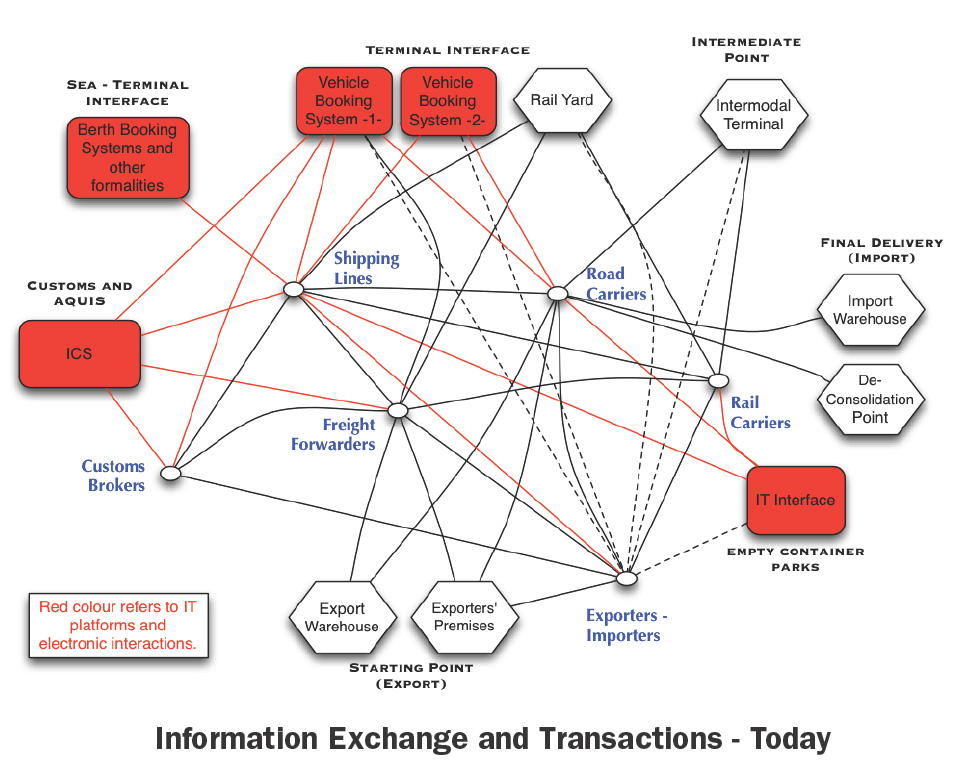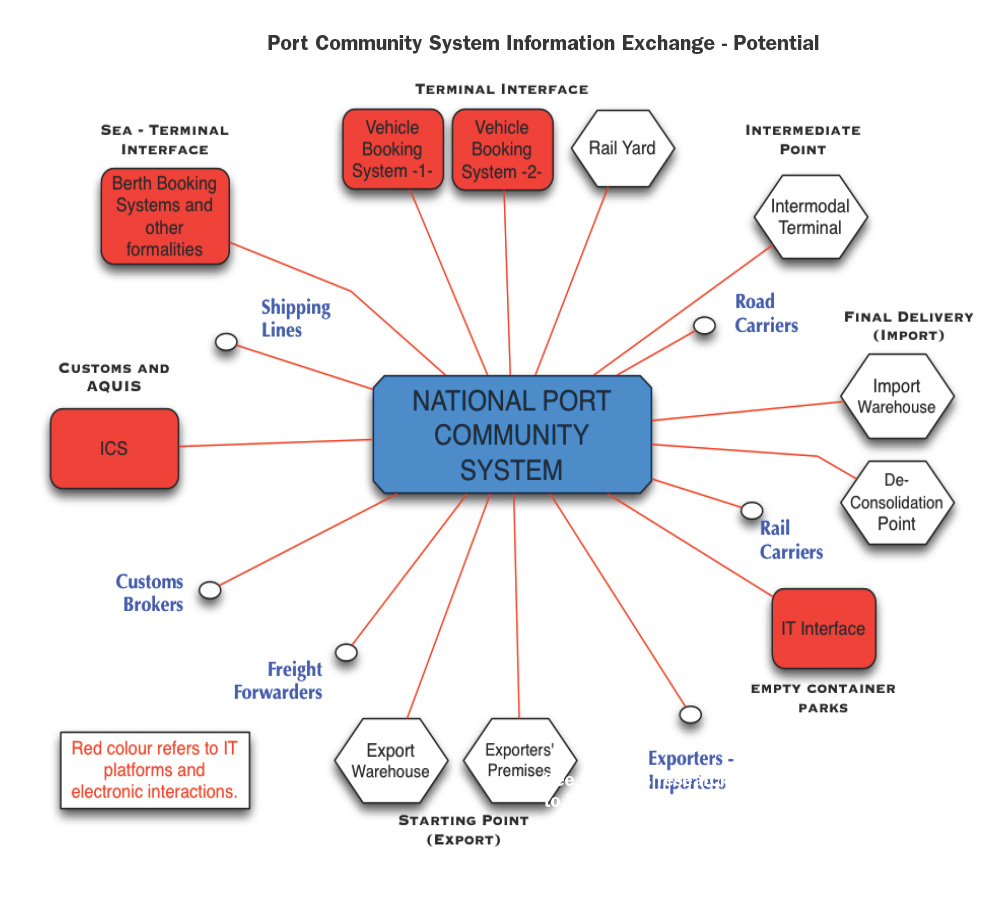Total Port Logistics
The inadequate, inaccurate and untimely exchange of data impacts the competitiveness of Australian port supply chains.
The Challenge
Australian container freight supply chains suffer massive inefficiencies due to fragmented multi-party transactions, inadequate information sharing and variable IT penetration:
- A single container movement can require 120 transactions with up to 50% having data items unnecessarily repeated, increasing error rates
- Supply Chain Participants (SCPs) communicate through multiple channels and interact with multiple proprietary IT systems via multiple screens
- Issue identification is reactive, not predictive, and exacerbated by limited visibility of container identifiers, and cargo, at many stages across the supply chain.
The Approach: Port Community System development
A Port Community System (PCS) is a neutral and open computer system that allows supply chain participants to rapidly and securely exchange information after a single submission of data. PCSs enable public and private stakeholders to optimise, manage and automate port and logistics processes, facilitating commercial interactions between supply chain participants.
Impact
Lower cost of goods for consumers and higher returns for exporters as efficiency gains delivered in national container supply chains are shared with customers.
- Reduced re-keying information
- Reduced data errors
- Simplified back office processes and automating processes
- More effective fleet (vessels, trucks and locomotives) operations
- Real-time alerts for major events and issue management.
Industry Engagement
Data61 has developed this work in conjunction with around 200 domestic and international supply chain participants, and with strong support from Chamber of Commerce and Industry of Western Australia (CCIWA) and Valenciaport Foundation.
Download the Port Community Systems Brochure.


